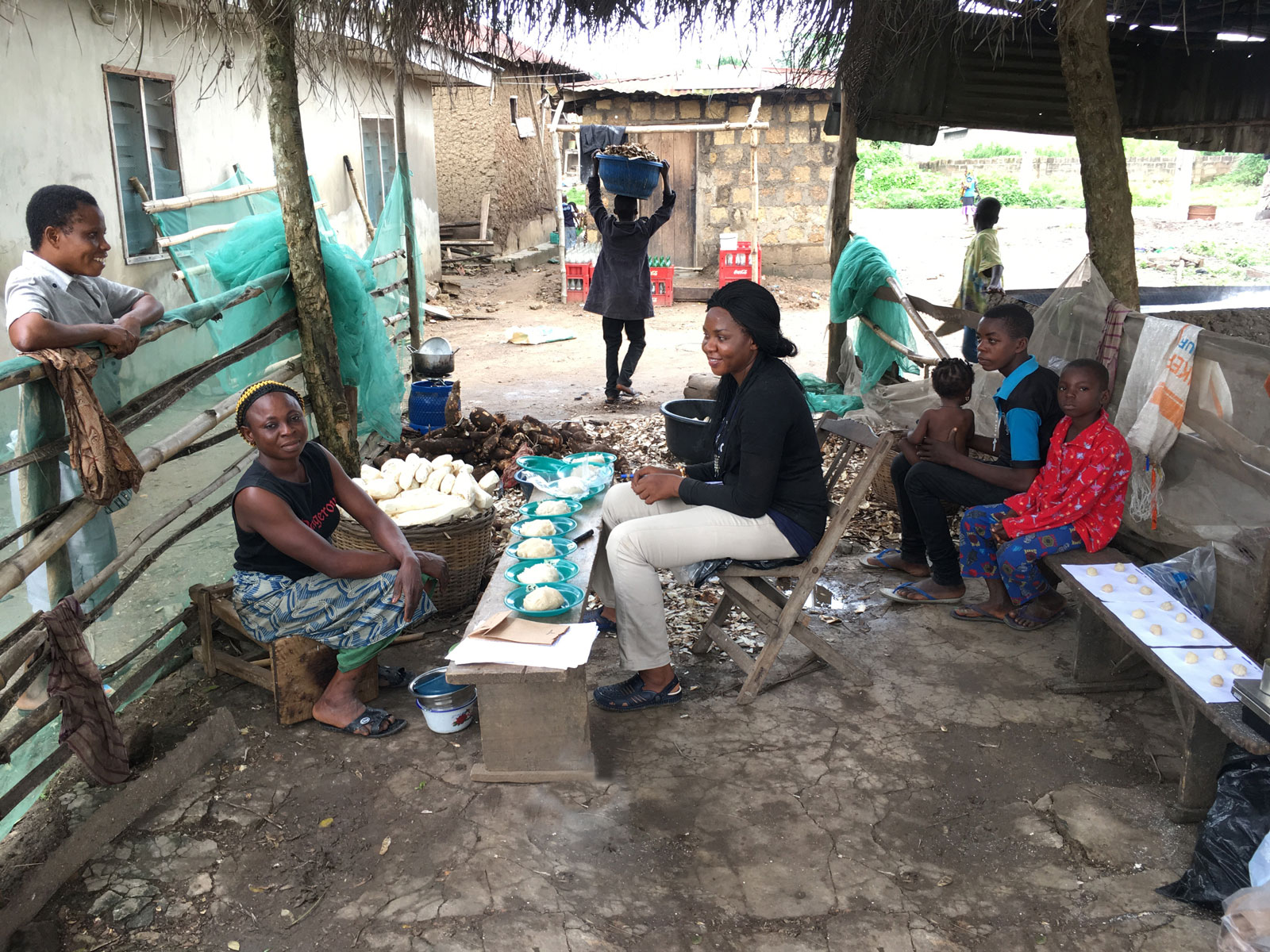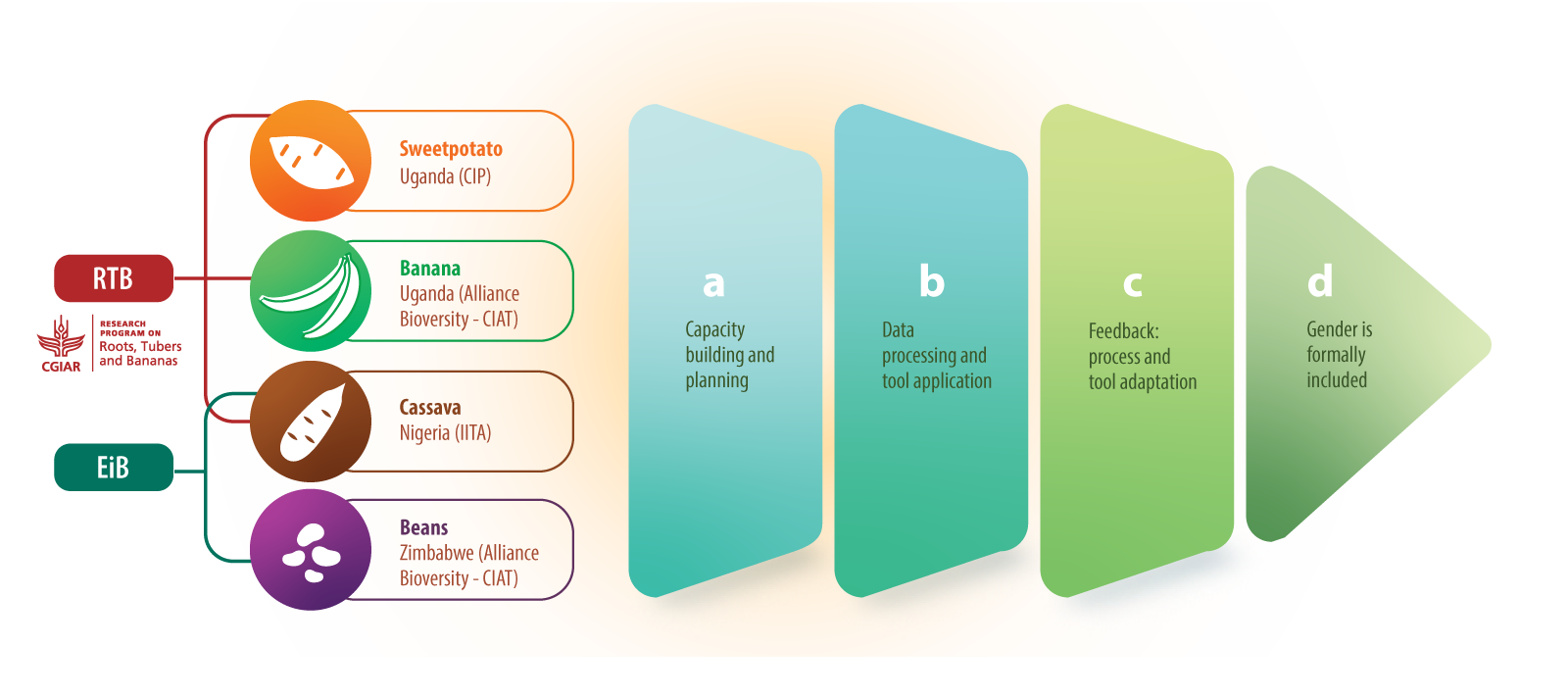
Gender inequality may hamper the adoption of new varieties, so breeding programs must understand what makes an innovation appeal to women and men. RTB, the CGIAR Excellence in Breeding Platform (EiB), and the CGIAR Gender Platform have jointly supported the Gender and Breeding Initiative GBI to develop the “G+ Tools” for gender-responsive breeding.
The G+ Customer Profile Tool describes the customer segments (demographic groups) who will be interested in a new variety. The customer segments may be based on occupation and gender, for example, male smallholders, female smallholders, or processors of both genders.
The G+ Product Profile Query Tool looks at the traits demanded by each customer segment. Is a specific trait (such as, short cooking time) “required”, “nice to have”, or “to be avoided”? This tool helps to define the traits that women and men need in a future variety, and traits that may cause harm.
The G+ tools guide a multidisciplinary team as they share knowledge and collaborate in advancing breeding products. In a pilot with cassava in Nigeria, in 2020, the tools helped the team to confirm the importance of focusing on gari and fufu (staple food products) in the breeding product profiles, while prioritizing small-scale women processors as a key customer segment.
A recent product advancement meeting highlighted the need to evaluate drudgery experienced by women processors, and the softening of the root during fermentation. Breeding erect plants could harm women farmers, who do most of the weeding, because more weeds grow under erect plants.
In Uganda, sweetpotato is mainly grown by women, and most of it is eaten at home. The G+ tools validated the decision to target white-fleshed, quick cooking sweetpotato for home use, in addition to OFSP varieties with their improved nutritive content, and reconfirmed the importance of disease resistance and high dry matter content.
Also, in Uganda, the tools were used to identify the banana trait preferences of women and men. Some traits, such as ease of peeling, are important to many farmers, but especially to women. Many other attributes are important to both women and men:

A series of online workshops on the tools attracted plant breeders and social scientists from many CGIAR centers. “The workshops were really useful for bringing a diverse group of plant breeders and social scientists together. The participants agreed that defining customer segments and product profiles should not only be about the plants, and crop traits, but more about the people, and how they will benefit from the breeding products,” said Vivian Polar from RTB. “These tools help to put gender and social inclusion at the heart of breeding.”
These successful interactions during the online workshop with plant breeders and social scientists demonstrate that the G+ tools can address gender and social inclusion when setting priorities for new crop varieties.
Gender and social inclusion were systematically included in four real-world cases of plant breeding.

SHARE THIS

